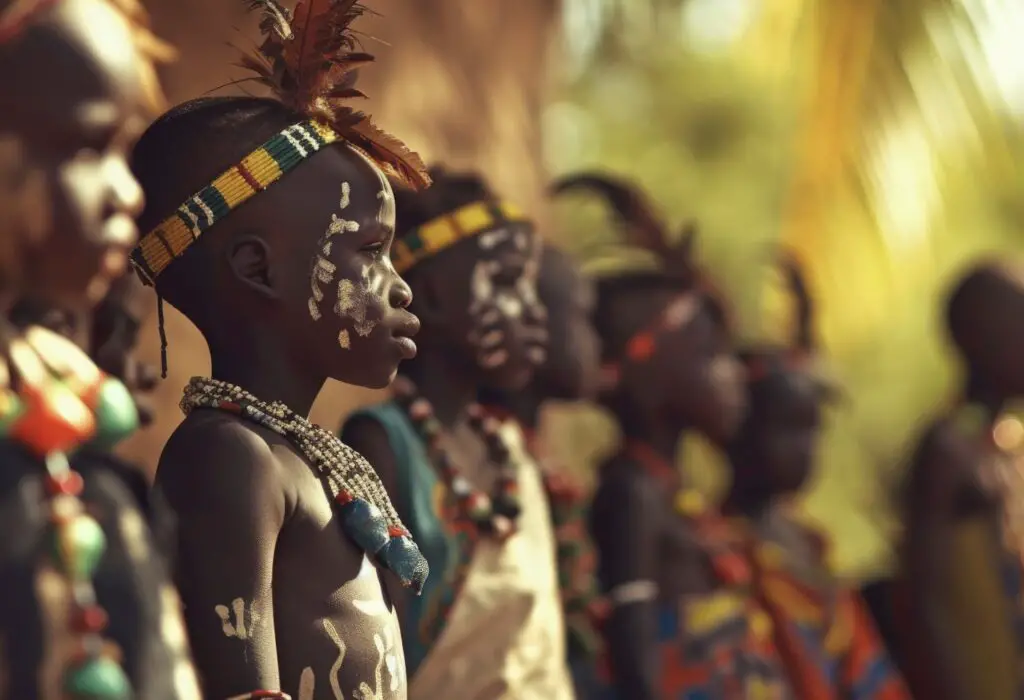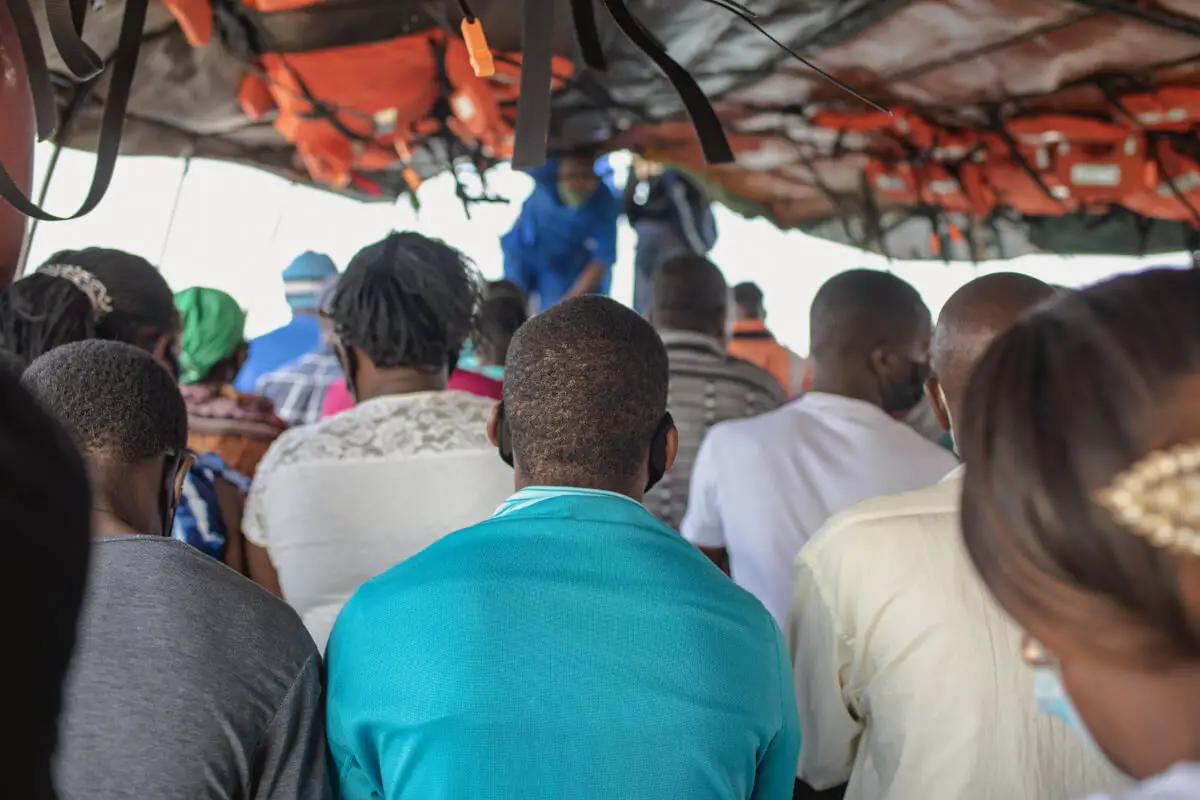Throughout history, nations’ narratives have been shaped by their encounters with external forces, with the struggle for sovereignty and identity at the forefront of these interactions. The stories of Ethiopia and Liberia offer insightful perspectives on how diplomacy, military strategy, and geographical advantages can play pivotal roles in maintaining independence amidst the aggressive expansion of colonial powers.
These accounts illuminate the resilience and strategic insight of these nations and contribute to a broader understanding of resistance against colonization in Africa.
Table of Contents
Historical Context
Ethiopia and Liberia are notable examples of African countries that managed to avoid colonization during the scramble for Africa. Their success stories involve a blend of diplomacy, military strategy, and geographical advantages.
Ethiopia leveraged its longstanding diplomatic ties with European powers, particularly Italy, France, and Britain. Emperor Menelik II, ruling from 1889 to 1913, skillfully navigated these relationships, playing one power against another to safeguard Ethiopia’s sovereignty.
He also modernized the Ethiopian military, acquiring modern weapons and training that later proved crucial in resisting Italian invasions, notably at the Battle of Adwa in 1896. This decisive victory was significant, marking the first major African win against a European power, solidifying Ethiopia’s independence on the global stage.
Liberia’s story of avoiding colonization pivots around its unique origins as a settlement by freed American and Caribbean slaves. The American Colonization Society, pivotal in the country’s foundation in 1822, established Liberia as a place for freed slaves.
Although not directly resulting from an internal strategy to avoid colonization, Liberia’s founding principles and ties to the United States provided protection. The country’s status as a quasi-protectorate of the United States discouraged European powers from attempting to colonize it despite several territorial encroachments and disputes with European colonial powers, particularly Britain and France.
Geography also played an indispensable role. Ethiopia’s rugged terrain made navigating and conquering difficult for European armies. The country’s mountains, valleys, and plateaus were natural fortresses during conflicts. Similarly, at least temporarily, the dense forests and fever-ridden climates of certain West African regions acted as deterrents to European occupation.
Another aspect was the internal cohesion within these regions. Both Ethiopia and Liberia managed to maintain a relatively high degree of political unity compared to other parts of Africa, where European powers often exploited inter-tribal rivalries and conflicts. In Ethiopia, the central authority under Menelik II unified the various ethnicities and kingdoms, while in Liberia, Americo-Liberians maintained a compact community with strong ties back to the United States.
In sum, these countries capitalized on adaptive diplomacy, strategic military planning, geographical blessings, and internal cohesion to navigate the treacherous waters of 19th and early 20th-century imperialism. Their stories highlight the complexity of resistance against colonization and underscore the resourcefulness and resilience of African states in the face of overwhelming odds.

Ethiopia’s Resistance
Beyond the factors contributing to Ethiopia’s ability to resist colonial powers, the country’s societal fabric played a crucial role. The firm, centralized feudal system under Emperor Menelik II enhanced governance and coordination, providing a solid base for mobilization against external threats.
Furthermore, Ethiopia’s deep-seated religious identity, primarily through the Ethiopian Orthodox Church, fostered a sense of unity and purpose among its people. This common religious belief united the society and instilled a collective will to defend their land and faith against foreign dominance.
With its rugged mountains and challenging terrain, Ethiopia’s geographical landscape was a formidable natural fortress. These geographic challenges made it harder for colonizers to navigate and control the region effectively. The experiences from Italy’s first failed attempts during the First Italo-Ethiopian War gave the Ethiopian military valuable insight into enemy tactics and the significance of mastering the terrain, which they used to their advantage in subsequent encounters.
The intellectual mobilization within Ethiopia also contributed significantly. Literacy and knowledge, centered around the church and the royal court, facilitated informed governance and diplomatic negotiations. Translating foreign military manuals and adopting modern bureaucratic practices into Amharic allowed for broader dissemination of new military and administrative strategies within the Ethiopian leadership.
Ethiopia’s engagement with modern weaponry and its strategic use were other critical elements. By negotiating arms deals with European nations like France and Russia, who were rivals to Italy, Ethiopia managed to arm itself with contemporary weapons, which were instrumental in leveling the playing field against well-equipped Italian forces.
The psychological aspect of resistance played a considerable role; Ethiopian leaders exploited patriotic sentiments to galvanize support against colonial encroachment. The narrative of defending the motherland was potent, and tales of potential victories and past successes, like the Battle of Adwa, were leveraged to inspire the populace and the fighting forces.
Internationally, Ethiopia played its diplomatic cards well by exploiting the rivalries among European powers. By fostering relations with Great Britain and France, Ethiopia ensured that its struggle against Italy was recognized, if not directly supported, thus preventing a united European front against it. These diplomatic maneuvers created an external environment less conducive to colonization efforts.
Ethiopia’s resistance to European colonization was symbolized by its people’s significant cultural pride and historical consciousness. The awareness of Ethiopia’s ancient civilization, its role as a bastion of early Christianity, and its symbolic significance as a free African kingdom motivated the leadership and the populace to defend their independence fiercely.
In summary, Ethiopia’s successful resistance against European colonization was multifaceted, combining geographical advantages, strong centralized governance, clever diplomacy, modernized military capabilities, and a united national identity driven by cultural pride and religious cohesion. This rich tapestry of factors set Ethiopia apart as a beacon of independence in Africa during an era when colonial expansion seemed unstoppable.

Liberia’s Unique Status
While Ethiopia leveraged military strategy and diplomatic savvy, Liberia’s journey towards maintaining its sovereignty during the colonial scramble for Africa took a different path, one rooted in its establishment by America. Early on, Liberia was granted recognition by European powers, a move underscored by its unique founding story and the significant role of the United States in its early years. This recognition played a critical part in keeping colonial powers at bay.
Acknowledgment by European countries, notably the United Kingdom and France, came as early as the mid-19th century. This early acceptance into the international community underlined Liberia’s sovereignty and played a deterrent role against potential colonization. The recognition by significant powers can be seen as an acknowledgment of Liberia’s status as a free, sovereign state, not to be tampered with lightly.
The American Colonization Society’s involvement in Liberia’s foundation set the stage for a complex relationship with the United States. While not directly colonized, Liberia operated in a sphere of American influence that shielded it from European colonization attempts. This protectorate-like status provided a layer of international legitimacy and protection, even though it did lead to internal challenges and criticisms regarding true national sovereignty.
Liberia’s relationship with the United States also facilitated its ability to navigate the treacherous waters of international politics during a time when European powers partitioned Africa. The US vested interests in Liberia, partly due to its role in its founding and the presence of American-descended Liberians, created a political and economic link that discouraged European intervention. This connection was critical in an era when the doctrine of effective occupation required demonstrating political and territorial control for colonial claims.
Additionally, the idea of a nation founded by freed slaves held symbolic significance, presenting a moral and ideological challenge to the typical drivers of colonialism. This unique founding premise contributed to Liberia’s narrative as a beacon of liberty, complicating the moral justification for European colonization efforts.
Europe’s recognition of Liberia, facilitated by its American ties, resulted in treaties that honored its sovereignty. Various agreements acknowledged and, in some cases, offered support, drawing Liberia into a more comprehensive geopolitical network without subjecting it to colonization.
Despite these external factors, Liberia’s governance and diplomatic efforts should not be underestimated. Its leaders skillfully engaged with European powers, securing respect for its borders and independence at international conferences such as the Berlin Conference. Through adept diplomacy, Liberia managed to position itself as an equal on the international stage, borrowing tactics from Ethiopia’s successful resistance and its unique circumstances.
Indeed, Liberia’s story of maintaining its independence through a maze of external pressures and internal ambitions showcases a different facet of African resilience and strategic engagement with colonial powers. Unlike Ethiopia’s military and diplomatic milestones, Liberia’s story weaves through symbolic significance, legal sovereignty, and international politics, underscored by the protective yet complex relationship with the United States.

Impact of Non-Colonization
Focusing on the historical path that Ethiopia and Liberia took, their avoidance of colonization has fundamentally shaped their national identity. With its millenniums of sovereignty, Ethiopia has developed a strong sense of identity and pride among its citizens.
This deep-rooted national pride has been crucial in Ethiopia’s post-colonial development. The nation has worked to leverage its unique history to foster a sense of unity and resilience among its diverse ethnic groups, though not without challenges. The pride in their historical resistance to colonization often serves as a unifying force amidst the country’s internal conflicts and socio-economic challenges.
- Despite its unique relationship with the United States, Liberia’s trajectory as a never-colonized state has granted it a distinct place in the narrative of African development. This unusual founding story influences Liberia’s national consciousness, with its sovereignty having been recognized early on by European powers, providing a semblance of protection against colonization attempts.
Yet, this protection was double-edged, as it also placed the nation under the indirect influence of the United States. Liberia’s governance system and political development have been heavily influenced by this relationship, affecting everything from state institutions to the nation’s economic structure.
Ethiopia’s and Liberia’s economic paths diverge significantly from their colonized counterparts, primarily due to their different historical legacies. Both nations embarked on economic development largely on their terms. Unlike other African nations, Ethiopia’s lack of colonization meant it navigated the post-colonial era without overhauling a colonial economic system.
However, it has faced the challenge of modernizing its economy while preserving social cohesion among varied ethnic groups. Meanwhile, Liberia’s economic development has been consistently entwined with international affairs, with its governance and economic policies influenced significantly by its ties with the United States.
- Their non-colonization status has impacted political stability in both nations. Following its long history of centralized power under imperial rule, Ethiopia faced challenges transitioning to a democratic government system, with tensions often arising from the centralization of power and ethnic divisions.
In Liberia, political stability has been periodically interrupted by civil conflict, revealing the complexities of state-building in a nation founded by freed slaves and emigrants from the United States. Such conflicts draw attention to the underlying issues of national identity and power distribution among Liberia’s diverse population.
Both nations face challenges today shaped by their historical paths of avoiding colonization. Ethiopia contends balancing modernization and economic development with maintaining cultural identity and social cohesion. On the other hand, Liberia works towards strengthening its governance structures and fostering economic growth in the shadow of its historical ties with the United States.
The absence of direct colonization has left both Ethiopia and Liberia with a strong sense of national identity and independence unrecognized in many other African nations. Yet, this independence has also bestowed unique challenges on their paths to development, governance, and social unity—highlighting a complex narrative of benefit and struggle entwined in their historical avoidance of colonization.

Colonial Resistance Movements
In the broader context of African resistance to colonization, the Mau Mau Uprising in Kenya stands out as a significant struggle for independence. This movement against British colonial rule in the 1950s was characterized by guerrilla warfare in rural areas and active opposition in urban centers. Its impact reverberated beyond Kenya’s borders, inspiring liberation movements across the continent.
In Algeria, the National Liberation Front (FLN) waged a prolonged war of independence against French colonial rule from 1954 to 1962. This brutal conflict, marked by guerrilla warfare, acts of terrorism, and counter-terrorism, eventually led to Algeria gaining its independence. The struggle highlighted the lengths to which colonized people were willing to go to reclaim their autonomy. It served as a wake-up call to colonial powers about the unsustainable nature of their dominance.
The independence struggle in Angola, driven by multiple resistance groups, including the Popular Movement for the Liberation of Angola (MPLA), further underscores the theme of African resilience. Beginning in the 1960s, this multifaceted liberation effort encompassed a range of strategies, from diplomacy and political petitions to armed conflict. Angola’s path to independence, culminating in 1975, was complex and underscored by Cold War dynamics, illustrating how global politics often intersected with local struggles against colonialism.
In South Africa, the struggle against apartheid — a system of institutionalized racial segregation and discrimination — highlighted another form of resistance. Movements led by the African National Congress (ANC) and other groups combined legal battles, peaceful protests, civil disobedience, and, at times, armed resistance to challenge both colonial and racially discriminatory practices. The eventual dismantling of apartheid and the rise of Nelson Mandela to the presidency in 1994 illuminated the power of sustained resistance and international solidarity in overturning systemic oppression.
West Africa’s struggle for independence, mainly through Ghana’s leadership under Kwame Nkrumah, showcases the strategic use of nonviolent resistance and political savvy in shaking off colonial control. Nkrumah’s approach of mobilizing mass support and strategic international engagement set a precedent for peaceful transitions to independence across the region.
The role of women’s movements in Algeria during the War of Independence illustrates another crucial aspect of resistance. Algerian women actively participated in the FLN’s efforts as fighters and supporters, challenging colonial rule while confronting traditional gender norms. Their contributions remind us that liberation struggles included broad societal participation and transcending gender roles and expectations.
These instances of resistance across Africa underscore a shared determination to challenge colonial dominance. Each movement adapted to its specific context but was united by a common goal of self-determination. The legacy of these struggles is evident today, as they set the foundations for contemporary governance, social dynamics, and international relations across the continent.
Their stories are not just historical footnotes but vibrant chapters that continue to inspire and inform the quest for national identity and autonomy in the face of external pressures. The resilience displayed by these nations underscores a fundamental truth: the spirit of independence burns brightly even in the darkest times of subjugation.
Listen To Our Podcast About
How Did Ethiopia and Liberia Remain Uncolonized? Below or By clicking here.

At A Bus On A Dusty Road, we talk about everything about travel, life, and ex-pat living. We are all about “Living Life As A Global Citizen.” We explore social, cultural, and economic issues and travel.
We would love to have you be part of our community. Sign up for our newsletter to keep up-to-date by clicking here. If you have any questions, you can contact me, Anita, by clicking here.
Listen to our Podcast called Dusty Roads. You can find it on all major podcast platforms. Try out listening to one of our podcasts by clicking here.
Subscribe to our A Bus On A Dusty Road YouTube Channel with great videos and information by clicking here.
Related Questions
When Was China’s War With Vietnam?
China and Vietnam have a long history with one another, which includes wars and conflicts that date back to the 7th century. In recent years, both nations have become important trading partners, but there is still tension between them regarding their shared border in Southeast Asia.
By clicking here, you can discover When Was China’s War With Vietnam?
Could America Have Won The Vietnam War?
America could not have won the Vietnam war as America never won the hearts and minds of the Vietnamese people. The Americans had a hard time controlling the Vietnamese people in South Vietnam; many Southern Vietnamese were disillusioned with the South Vietnamese government. Ho Chi Minh, the leader of North Vietnam, fully understood that another foreign power could never fully control the Vietnamese heart and soul.
By clicking here, you can discover Could America Have Won The Vietnam War?
How Many Vietnam War-era Bombs Are Still in Vietnam?
I live a few miles from downtown of Hanoi, Vietnam; my house is only a few miles from the famous Hanoi prison where many American service members were held prisoner during the Vietnam War. Today, Hanoi is a bustling city home to millions of people, yet they continue to find unexploded Vietnam War-era bombs throughout Hanoi.
By clicking here, you can discover How Many Vietnam War-era Bombs Are Still in Vietnam?

